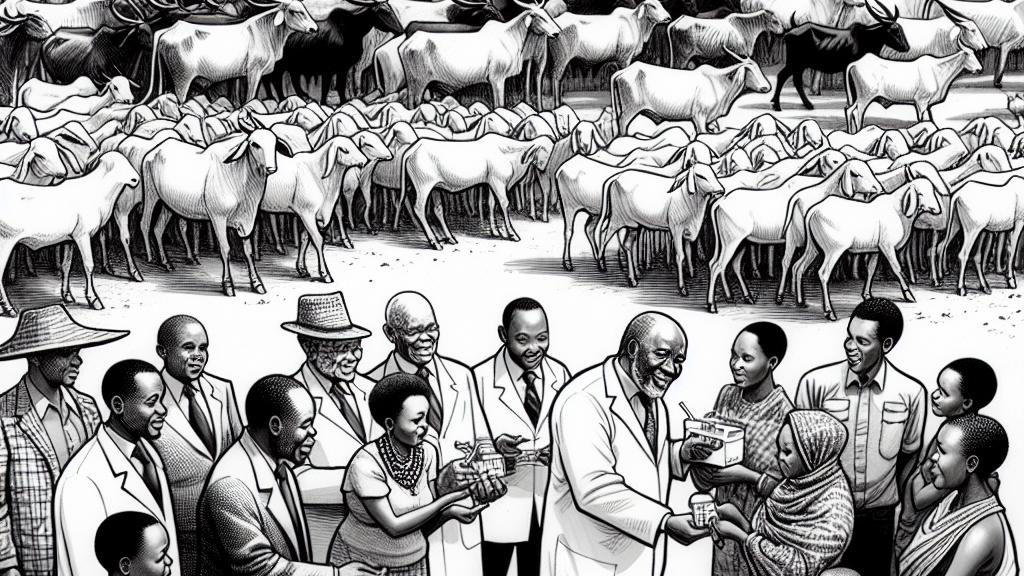Understanding the Controversy Over Livestock Vaccination in Kenya
Overview
- Kenya is rolling out a groundbreaking livestock vaccination initiative aimed at enhancing animal welfare.
- Resistance from farmers stems from pervasive misinformation and a deep-seated distrust of government motives.
- Conspiracy theories linking the vaccine program to Bill Gates add complexity to the public's understanding and acceptance.

The Importance of the Vaccination Initiative
This week, Kenya embarks on a transformative journey with its ambitious livestock vaccination program, targeting a staggering 22 million cattle and 50 million goats and sheep. Imagine the implications: healthier animals can lead to thriving farms, increased meat and milk production, and lucrative export opportunities. The government's pledge to shoulder all costs makes this initiative not just beneficial but also accessible for farmers across the nation. Yet, rather than viewing this as a golden opportunity, many farmers are hesitant, fearing backlash from their communities if they support vaccination efforts.
Misinformation as a Barrier
At the heart of this resistance lies a web of misinformation that spreads like wildfire on social media. Take Robert Nkukuu, for example; a cattle owner who believes that advocating for vaccinations could lead to severe social repercussions. His fears echo the sentiments of many, who are spurred by conspiracy theories that unfoundedly connect the vaccination initiative with figures like Bill Gates. Gates, known for discussing the role of livestock in methane emissions, has inadvertently become a focal point of distrust. These misconceptions, while exaggerated, pose considerable hurdles to the initiative's success, as they cloud the genuine benefits behind vaccination.
The Tangible Benefits of Vaccination
Despite the skepticism, the tangible benefits of livestock vaccination are difficult to ignore. Research indicates that vaccinating against diseases such as East Coast fever significantly lowers mortality rates among livestock. For instance, families that have engaged in vaccination programs report not only a surge in milk production but also a dramatic reduction in expenditure on antibiotics. This newfound financial freedom allows families to allocate more resources towards critical areas like education and healthcare for their children. Moreover, initiatives such as the Livestock Vaccine Innovation Fund are pioneering ways to develop and implement vaccines that address neglected diseases, ultimately improving the livelihoods of countless pastoralists.
Strategies for Building Trust and Acceptance
To overcome the hurdles of skepticism and misinformation, the government must adopt a proactive approach focused on clear communication and community engagement. Experts passionately assert that vaccines will not compromise the genetic integrity of livestock; instead, they enhance their health resilience—just like how human vaccinations function. By fostering an open dialogue with the community, addressing misconceptions directly, and sharing success stories from those who have already benefited, officials can build a foundation of trust. This groundwork will not only facilitate acceptance of the vaccination initiative but could also pave the way for broader advancements in agricultural health and sustainability throughout Kenya.

Loading...